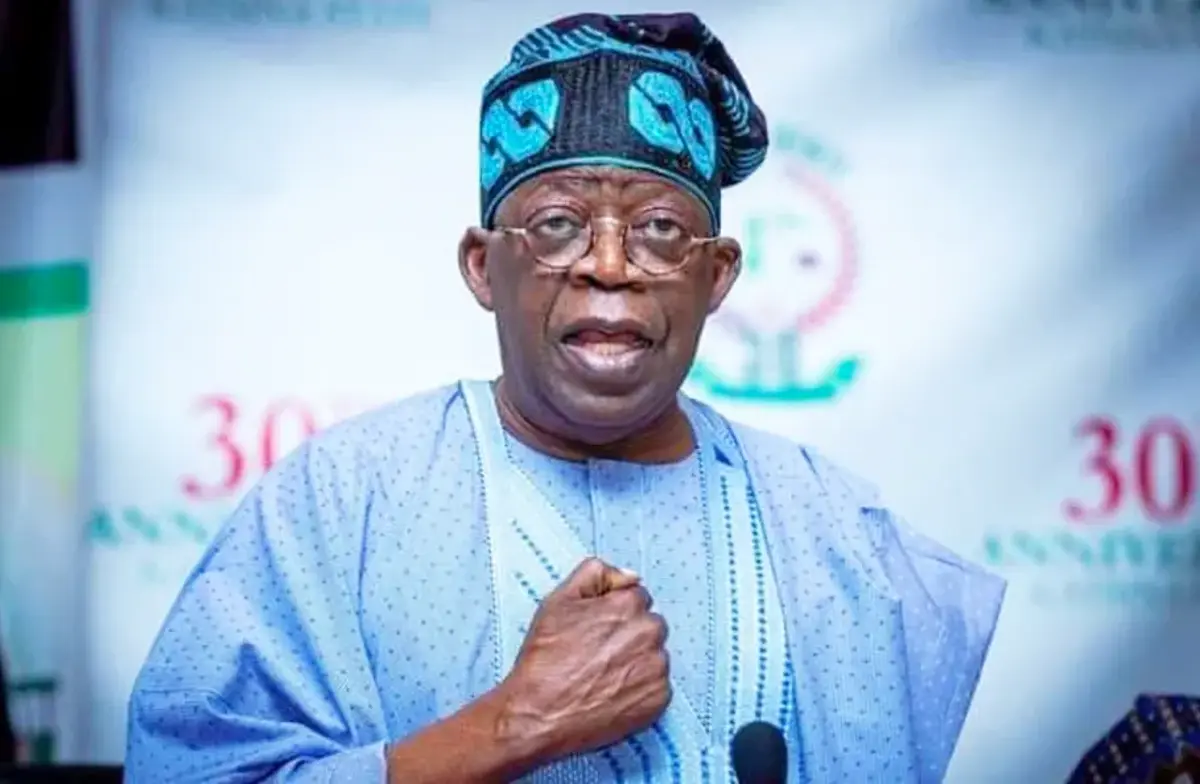The state of Nigeria’s economy has got many fearing for the worse due to the consistently declining oil revenues, which in itself is fuelled by oil theft, pipeline vandalism, and the opaque way the sector is being run. BENJAMIN UMUTEME in this report engages experts, stakeholders and other informed citizens on what the in-coming administration ought to do to move the country out of the woods.
The agriculture sector has remained challenged by ever-rising insecurity with has made it difficult to reap the benefits of the various intervention programmes of the federal government through the Central Bank of Nigeria (CBN).
The situation of the industrial sector has also not been one of cheering news with the country’s perennial power problem acting as a drawback to the sector working to its full potential.
With the presidential election which was held on February 25, and the subsequent declaration of the candidate of the All Progressives Congress (APC), Asiwaju Bola Ahmed Tinubu, as the winner with the highest of 8,794,726 votes, followed by Atiku Abubakar of the Peoples Democratic Party (PDP) with a total votes of 6,984,520 votes. Peter Obi of the Labour Party (LP) scored 6,101,533 votes and it was obvious that he would have his hands full when he finally assumes office on May 29.
From the vexed petroleum subsidies issue to the country’s huge debt burden and low foreign direct investments (FDIs), experts are unified in their arguments that the in-coming government needs to hit the ground running.
Many economists have insisted that for the country to survive economically, there’s the need to remove the petrol subsidy, deregulate the exchange rate, downsize the government’s payroll and widen the tax net. However, the question many more have been asking is whether or not the in-coming president will have the political will to carry out these needed reforms that have the potential to set the country on the path of growth and prosperity.
Reforms

Speaking with Blueprint Weekend, a financial analyst, Agaba Wilson Agaba, said the country needs a significant overhaul in many areas to transform its economy and address the problems it faces. According to Agaba, the in-coming president must take proactive steps towards reforming the country’s economic policies and implementing far-reaching reforms to address the root causes of its economic challenges.
He said, “Nigeria’s current economic situation is seen as critical by many experts and observers. In 2021, the African Development Bank reported that Nigeria’s economy grew by 3.6%, but this growth was not enough to alleviate poverty and unemployment. The country’s economy is also grappling with issues such as high inflation, low oil production, rising insecurity, and policy uncertainty. According to The Economist, unless a new leadership implements far-reaching reforms, Nigeria’s economy will continue to struggle in 2023.
“Some of the major problems facing Nigeria’s economy include low revenue collection, high debt-servicing, dependence on oil exports, border closure, exchange rate instability, and the impact of climate change. Additionally, the United States Institute of Peace highlights that Nigeria’s democratic development is threatened by deepening distrust in the government and its institutions.

“To enhance the country’s economic situation, the in-coming president must immediately embark on numerous monetary and fiscal reforms. Some of the crucial reforms needed include increasing transparency and predictability in exchange rate management policies, defining monetary policy priorities and objectives clearly, facilitating local production of essential goods and services, and promoting consumption of locally produced goods and services.”
He added that, “Also, eliminating the petrol subsidy and increasing excise taxes, rationalising tax expenditures, removing loopholes in tax laws, and improving tax administration will help mobilise domestic non-oil revenue. Additionally, measures that can help improve the domestic business environment, extend reform policies to states and local governments, and translate the benefits of reforms into welfare improvements for citizens include improving infrastructure, human capital development, promoting economic diversification, strengthening governance and anti-corruption institutions, and fostering political stability and security.”
In his view, a financial expert, Aliyu Ilias, urged the in-coming government to critically consider issues relating to micro, small and medium enterprises (MSMEs), logistics and supply of farm produce as well as access to credits.
“The economic policy should consider MSMEs, it should consider logistics, and also create credit again; this is because credit is never enough for small businesses. They should at NIRSAL and possibly domesticate it to the states as well.
“I think the in-coming government should consider the removal of fuel subsidies. I think at this point in time, it will be pretty difficult to completely remove fuel subsidies. Maybe he has to come up with a short-term plan before putting a stop to it, maybe in one year.
“I want him to also create a programme/fund that MSMEs can always come in to take from is very key. Ease of doing business is also an area of priority for the in-coming president. He should move beyond working on the bottlenecks in terms of CAC registration, to also go into logistics, making things easy for people,” he said.
According to him, “He should come up with his short, medium and long-term plan; and make different states to buy into it. Even artisans should be aware so that Nigerians can also follow his plan.
“Like the attention given to rice can also be given to other agricultural products, especially Nigeria needs a cargo airport that can take perishable agricultural produce to Europe and America within 10 hours, so that people that are into agriculture will know that if they have a produce, they can export within 24 hours. That would help a lot. The Bank of Industry (BoI) is doing well, but he should be able to improve on what they have done before. They should move from its present small scale.”
Taxation
In his opinion, the managing Partner at Shehu Mohammed & Co., Shehu Mohammed, told this reporter that for the in-coming administration, revenue generation should top its agenda.
According to Mohammed, with oil revenue contributing less to the federation account, it has become a no-brainer for the in-coming administration to prioritise it.
He said, “Personally, I think they need to do more on revenue generation because you find out that everyday the government’s expenditure is rising and what we are getting, especially from oil, is not as much as we were getting before.
“There is a need to do more on taxation to increase the tax net. You see, when they increase the tax net that will ensure that more Nigerians are paying tax. Presently, you will find out that many individuals and organisations are not paying tax. If many people are brought into the tax net, it is possible to reduce the rate of tax and still get more people to be paying tax.
“Also, there is a need to block loopholes for wastage. There are so many areas where we are just wasting our resources on; so, the government needs to look at all these areas, sector by sector, and deal with them. There have been questions around what the government uses the tax revenue for? There should be more communication between the government and the people. Informing the citizens on how tax revenue is spent would motivate citizens to play their part.”
Tackling corruption in govt circles
In spite of the gloomy nature of the nation’s economic situation, a political economist, Adefolarin Olamilekan, while speaking exclusively to Blueprint Weekend on his economic blueprint for the in-coming administration, said he’s confident that the president-elect and his team are coming with hope. According to him, the hope is in the fact that the president-elect would do things differently.
He said while the situation “is complex, it is not beyond the capacity of the in-coming administration to address.”
“More so, the problem with the country’s economy over the years under successive governments at the centre has not been tackled. That is why till date, our economic policy thrust has not yielded the desired results. And regrettably, Nigerians are at the receiving end of bad economic policies and poorly implemented good ones.
“The expectations of Nigerians are huge with talks of debts, shortfall in revenue, petrol subsidy removal impact, forex challenges and Naira’s free fall, unemployment, electricity power deficit, dilapidated roads across the country, high cost of doing business and headline inflation, the negative impact of naira redesigned policy, and many others.
“Let’s not forget the pressure and uncertainty around the global economy. Particularly, there’s the challenge of international price transmission of goods and services. This is what we witnessed in the importation of luxury items as well as PMS and gas,” he said.
Speaking further, Olamilekan said, “Having said this, for us we hope the in-coming government would prioritise power electricity generation, transmission and distribution? This is the way to bring back localisation of industry.”
Aside from all the above, Adefolarin asserted that tackling corruption, especially as it has to do with procurement, will save billions of the Naira.
“Another very important aspect is tackling corruption around the government procurement and contracts to help save for development purposes.
“We also expect a thorough alternative to cushion the impact of planned removal of petrol subsidies. While our desire for the in-coming government is to ensure we refine petroleum product locality with distribution for target domestic consumption as first among equals. Similarly, supporting local manufacturers with incentives that are not just loans, but tax credit and removal of multiple tax laws will greatly lift the economy.”
Fiscal prudence
For Chinua Asuzu, the in-coming president should install a system of financial prudence, and discipline in the management of the nation’s finances.
He said, “Our next president should, immediately after inauguration, begin the installation of a system of decency, discipline, and modesty in the government. This is not only about fighting corruption, but also about entrenching visible prudence and thrift. The incoming administration should manage and deploy public funds and resources with transparent frugality, and ensure regular audit of all agencies, departments, and ministries.
“The in-coming administration should prioritise infrastructure, especially educational facilities, health care facilities, transport (airports, bridges, rails, roads, and waterways), and utilities (electricity, gas, sewerage, and water). The administration should start with rail and roads: building new ones and repairing or maintaining existing ones.
“The in-coming administration should modernise and upgrade the nation’s educational institutions so that they meet the highest international standards. It should also require private institutions to meet these standards.”
Power supply
According to Friday Efih, an economist, fixing the country’s power challenge should be at the heart of any reform problem that would go a long way in addressing issues of unemployment and low manufacturing capacity.
“Personally, I sincerely believe that if the in-coming president and his team can fix the country’s power sector, industries that have gone under due to the lack of power will come alive. This means that the people will be employed and they will pay tax and you know what that means for the country.
“And there is also the vexed subsidy issue. I just hope that Tinubu has the courage to match action with words concerning the removal of the controversial subsidy payment,” Efih said.
Sources:Blueprint
Read Also: Uphold Your Integrity: NITP Tasks Members





